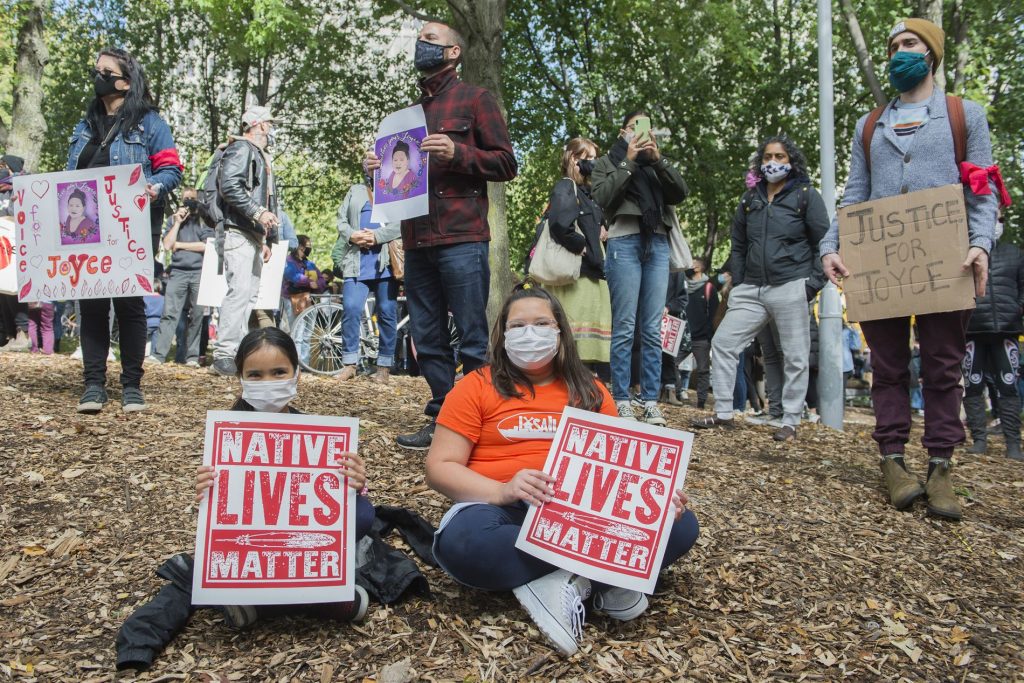
James Maskalyk is an emergency physician, associate professor in the University of Toronto’s Faculty of Medicine and author of the forthcoming book Doctor: Heal Thyself. Dave Courchene is the founder of the Turtle Lodge International Centre for Indigenous Education and Wellness and chair of its National Knowledge Keepers’ Council.
Emergency department visits are down across the country because people are not sure they are safe. For First Nations, the uncertainty is familiar, but has little to do with COVID-19. The hesitation comes from reports that continue to emerge suggesting the care one receives in hospitals depends on who you are. Or aren’t. Like Joyce Echaquan. Lillian Vanasse. Sarah Morrison’s unborn baby, who died en route to a distant hospital in British Columbia after being turned away from her closest one.
If you need other stories, read the 2020 report on racism in health care, “In Plain Sight,” commissioned by the government of British Columbia. Some will argue their details, that these deaths would have happened even if these people weren’t First Nations seeking medical care. Even if true, it misses a larger point. The Indigenous community is systematically denied, more than any other group, the most important medicine a person can receive when they are suffering: kindness. Their fight for it is one that will lift us all.
If you’ve listened to Ms. Echaquan’s last video, the absence of empathy is glaring. She is told she doesn’t belong in a place all governments have pledged to flex beyond capacity to accommodate those infected with the coronavirus. For many First Nations, the sentiment is familiar, as it is to other deliberately oppressed groups. To whomever it is directed, the message sent, and received, is that in these shared spaces, some people’s pain matters less.
It is not true. We are all beautiful, down to our last cell, and deserving of grace. Suggesting otherwise, especially as a final injustice delivered to a person after a lifetime of them, eats away at the safety of the people who mourn them. While there are innumerable examples of kind and effective care delivered to people, regardless of background, that a person never knows which she might encounter, creates chronic stress and a reluctance to seek help. Further, the refusal to engage at a human level means the system can neither learn about, nor meet, her true challenges. These echo against each other, and emerge as worse health outcomes in individuals and their communities, including from COVID-19. To remedy this, the cause must be addressed.
The root of these erosive attitudes, whether is it formed around race, sex, age, income or some other arbitrary line, comes from the colonial belief that nature is a pyramid, with humans at the top, animals below, bugs near the bottom. This type of hierarchical thinking continues within each stratum, with some members of the human family certain they occupy a superior, or as worryingly, a less deserving position. This attitude of dominance, first over the earth, and by extension one person over another, kindles pandemics, climate change, insurrection, violence, inequity and addiction. Only by appreciating our true place in nature as equal to and dependent on every other part of it, will we know freedom from these.
There is no greater goal than safe spaces centred on respect and compassion. With that intention, particularly to address anti-Indigenous racism in health care, a meeting occurred in late January between provincial and federal governments, with representatives from Inuit, Métis and First Nations. At its conclusion, the federal government promised to develop legislation devoted to improving Indigenous health, and strike a National Consortium for Indigenous Medical Education.
These are familiar steps. No law, so far, has succeeded, and if a more effective one was written, the behaviour it prohibits will emerge another way. Further, the problem is larger than health care, and the education must address all manners of discrimination woven into our institutions. They are, after all, made only of people.
A national curriculum should be developed for Canada’s youth, Indigenous and non-Indigenous, teaching natural laws seen from a First Nations perspective, as passed down for thousands of years. Developed and led by First Nations across the country, it would do more than introduce the youth to the depth of a culture right in their midst; it would teach them, through experience, ancestral ways of stewardship, and kindle in them a spiritual relationship with the planet. To live in peace, a person must learn the kindness of the Earth as directed toward all living things, for when we feel that love, it grows through us to include all of humanity. Once this occurs, it is not possible to look at another person, particularly one who is struggling, with anything but kindness.
This is not the ground Ms. Echaquan’s pleas found, but we maintain her aim as the only thing that makes sense for all of us. As we change, our system does with us, and everyone will be included in our healing.